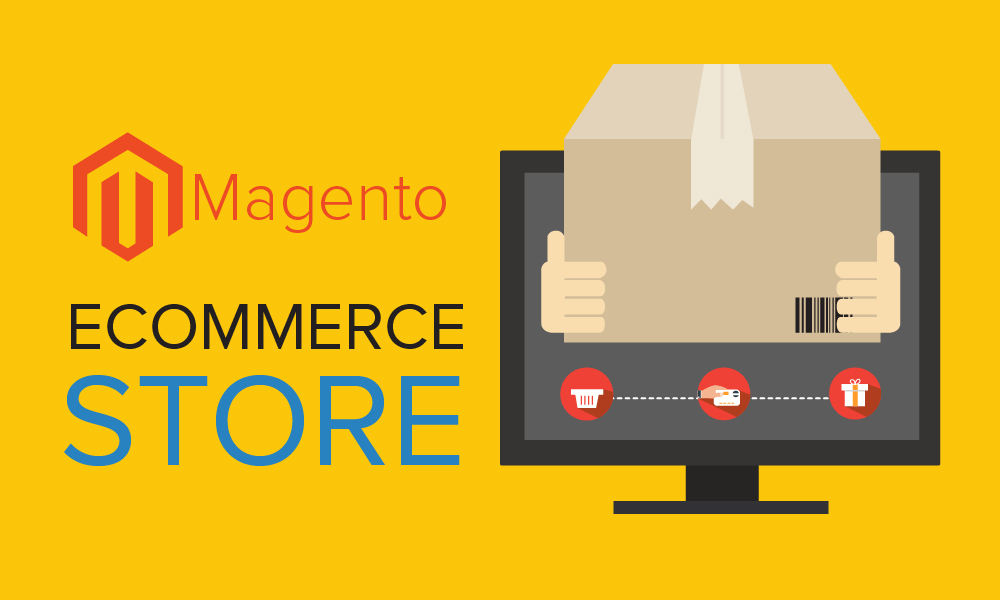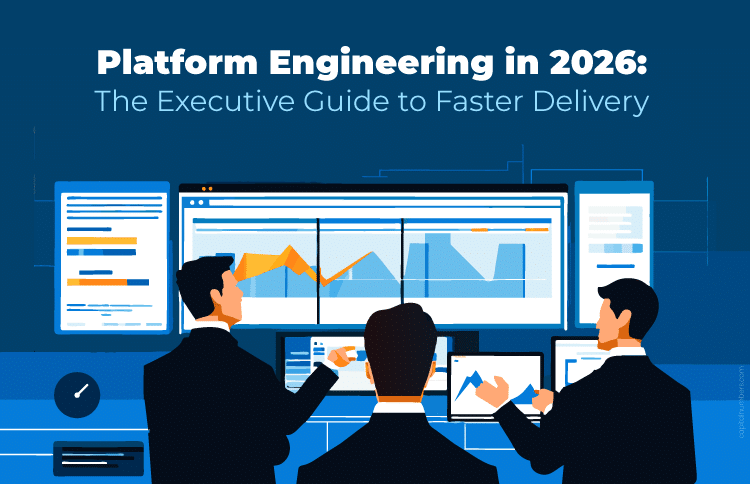A Few Words about Why Magento is Ideal for Ecommerce
Table of Contents
If you’re running or planning to start an online store, choosing the right ecommerce platform is one of the most important decisions you’ll make. You need something flexible, scalable, and built for growth – not just a platform that works today, but one that can evolve with your business. That’s exactly what Magento offers.
It gives you complete control over your store’s design, functionality, and customer experience. You can customize every element, handle multiple stores, and manage large product catalogs without slowing down performance. Magento also integrates seamlessly with payment gateways, CRMs, and marketing tools while helping you run everything from one place.
This blog highlights the key aspects that make Magento the perfect choice for ecommerce businesses.
Benefits of Magento for Ecommerce
Here’s a closer look at what makes Magento a powerful platform for ecommerce success:
1. Unmatched Flexibility and Customization
When you build your online store, you don’t want limits. Magento gives you full control over how your store looks, feels, and functions. You can create a storefront that matches your brand perfectly – not just another template that looks like everyone else’s.
You can add custom checkout flows, build multilingual stores, or create personalized pricing rules for different customer groups. Whether you sell one product or ten thousand, Magento adapts to your business logic.
If you have in-house developers, they’ll love the freedom to extend features with modules or integrate third-party tools. And if you’re hiring Magento developers, they can easily customize and fine-tune every element to match your exact business needs.
2. Superior Performance and Speed Optimization
A fast store keeps customers engaged and reduces bounce rates while improving conversions. Magento supports full-page caching, optimized indexing, and content delivery networks (CDNs) for faster load times. You can also fine-tune server configurations and caching strategies to handle seasonal spikes. In ecommerce, milliseconds matter – and Magento gives you the control to stay ahead.
You May Also Read: Magento Performance Optimization: Boost Speed, Stability, and Scalability
3. Scalable Architecture for Growing Businesses
Magento’s architecture is built for scale. It can handle small catalogs today and tens of thousands of SKUs tomorrow without breaking a sweat.
You can start with a single store and later manage multiple storefronts, brands, or even regional versions, all from one admin panel. Magento lets you plan for growth from day one instead of scrambling to migrate later.
4. Robust Feature Set Out-of-the-Box
You shouldn’t have to chase plugins for every small feature. Magento gives you powerful capabilities right out of the box. It’s a big win if you’re going global.
Its product management tools let you handle complex catalogs easily, from grouped items to digital downloads. You can also set dynamic pricing, discounts, and promotions without extra extensions.
SEO comes built-in, too. Clean URLs, meta tags, sitemaps, and schema support help your store rank better. Plus, the analytics dashboard gives you real-time insights into your sales, customers, and stock.
5. Advanced Inventory and Order Management
Running out of stock or overselling can hurt your business reputation. Magento helps you stay in control. You can manage inventory across multiple warehouses, track stock levels in real time, and automate backorders and restocking alerts. Its built-in Order Management System (OMS) simplifies fulfillment by routing orders to the nearest location or best-performing channel. You save time, reduce errors, and keep customers happy with accurate delivery updates and smooth order handling.
6. Mobile-Responsive and Progressive Web App (PWA) Support
Your customers shop on their phones more than ever, and Magento makes sure your store looks and performs perfectly on any device.
With Magento’s responsive design themes and PWA Studio, you can deliver app-like experiences directly in the browser – fast loading, smooth navigation, and offline access included.
A PWA-powered Magento store helps you boost mobile conversions, reduce cart abandonment, and offer a seamless shopping experience that feels native without building a separate app.
7. Seamless Integration Capabilities
No ecommerce business runs in isolation. You rely on CRMs, ERPs, marketing tools, and payment gateways to keep things moving. Magento connects with them all.
It integrates with major platforms like Salesforce, HubSpot, Mailchimp, and QuickBooks. You can sync your inventory, automate order processing, and personalize customer journeys without juggling multiple systems.
If you sell across channels, Magento’s API-friendly design lets you connect to marketplaces like Amazon, eBay, or social platforms. Everything works together seamlessly, so you always have a unified view of your business.
8. Security, Compliance, and Reliability
Customers share their payment details with you, and they expect that data to stay safe. This is another area where Magento stands tall. It’s PCI-compliant, supports advanced encryption, and offers regular security patches from Adobe. You can also enable two-factor authentication, role-based access, and CAPTCHA to protect your admin area.
Magento’s security center keeps you updated with the latest advisories. It’s built on a strong, open-source foundation that’s been tested by thousands of developers and businesses worldwide. That reliability is what gives both you and your customers peace of mind.
9. Strong Community and Professional Support
There’s a thriving global community of developers, partners, and experts who continuously build new modules, fix issues, and share insights. You’ll find extensive documentation, tutorials, and forums that make it easier to troubleshoot or explore new features. If you prefer professional guidance, Adobe Commerce offers enterprise-level support with guaranteed SLAs.
This active ecosystem implies faster innovation, better extensions, and more reliable updates. You can always find a partner or certified developer who understands your business goals and can help you get there.
10. Cost Efficiency in the Long Run
At first glance, Magento might look like a bigger investment than hosted platforms. But when you evaluate the full picture, the numbers make sense. You own your store completely – no recurring platform fees, no sales commissions, and no dependency on a single vendor.
You choose your hosting, scale your infrastructure as you grow, and control your customization costs. Over time, that freedom adds up to serious savings.
Many businesses find Magento more economical once they cross a certain scale because they avoid paying extra for advanced features or transaction-based fees.
How to Manage Your Magento Store Effectively
Running your ecommerce store on Magento is exciting, but it also demands structure and discipline. Once your store is live, managing it effectively determines how smoothly it runs and how profitable it becomes. Here’s how you can handle your Magento store efficiently:
- Keep Your Magento Updated: It’s advisable to use the latest version. Updates include security patches, new features, and performance improvements that protect and strengthen your store.
- Monitor Performance Regularly: You need to check loading times, server health, and database speed. With Magento’s built-in reports and third-party tools like New Relic, you can detect issues early.
- Organize Your Catalog: The product categories must be clearly defined, images optimized, and descriptions consistent. As a result, customers will find it easier to navigate. This approach will also improve your SEO efforts.
- Effective Product Grouping: You can streamline your Magento store with effective product grouping. Customers will be inclined to buy more if you show related items together.
- Leverage Magento Reports: Use sales, customer, and inventory reports to spot trends, track performance, and plan smarter campaigns.
- Automate Repetitive Tasks: You should automate inventory updates, order confirmations, and email workflows. With this tactic, you can reduce manual errors and save significant time.
- Secure Your Store: Regularly back up data, enforce strong admin passwords, and enable two-factor authentication.
- Test Before You Deploy: Always test new extensions, themes, or updates in a staging environment before applying them live.
You May Also Read: Top Magento Development Mistakes to Avoid for Ecommerce Success
Conclusion
Magento gives you the freedom to build an ecommerce business that’s powerful and secure. It’s a foundation that grows with your goals, adapts to new trends, and supports every stage of your journey. Whether you’re expanding product lines, entering new markets, or personalizing the customer experience, Magento provides the flexibility and scalability you need. If you’re serious about building a future-ready online store, Magento offers the right balance of control, performance, and innovation to help your business lead.
FAQs
1. Is Magento suitable for small or mid-sized ecommerce businesses, or only for large enterprises?
Magento works well for businesses of all sizes. Small and mid-sized companies can start with the open-source version and scale gradually as they grow. Its modular structure allows you to add advanced features later, without migrating to another platform.
2. How difficult is it to manage a Magento store without technical expertise?
Magento offers a robust admin dashboard that’s intuitive once you get familiar with it. However, initial setup and customization usually require technical knowledge. Partnering with experienced Magento developers makes the process smoother and ensures your store runs efficiently.
3. What kind of hosting environment does Magento need?
Magento performs best on a dedicated or cloud-based hosting environment optimized for its architecture. Managed Magento Hosting providers handle caching, updates, and backups for you. This keeps your site fast, secure, and scalable as traffic grows.
4. Can Magento integrate with AI tools or advanced marketing automation platforms?
Yes, easily. Magento’s API-driven structure lets you integrate with AI-driven recommendation engines, chatbots, and marketing automation tools like HubSpot or Klaviyo. You can use data-driven personalization to boost engagement and sales.
5. How does Magento compare to Shopify in terms of ownership and control?
Unlike hosted platforms like Shopify, Magento gives you complete ownership of your data, codebase, and hosting. You decide where to host, how to scale, and what to customize. Hence, it’s ideal if you want long-term flexibility and independence.















